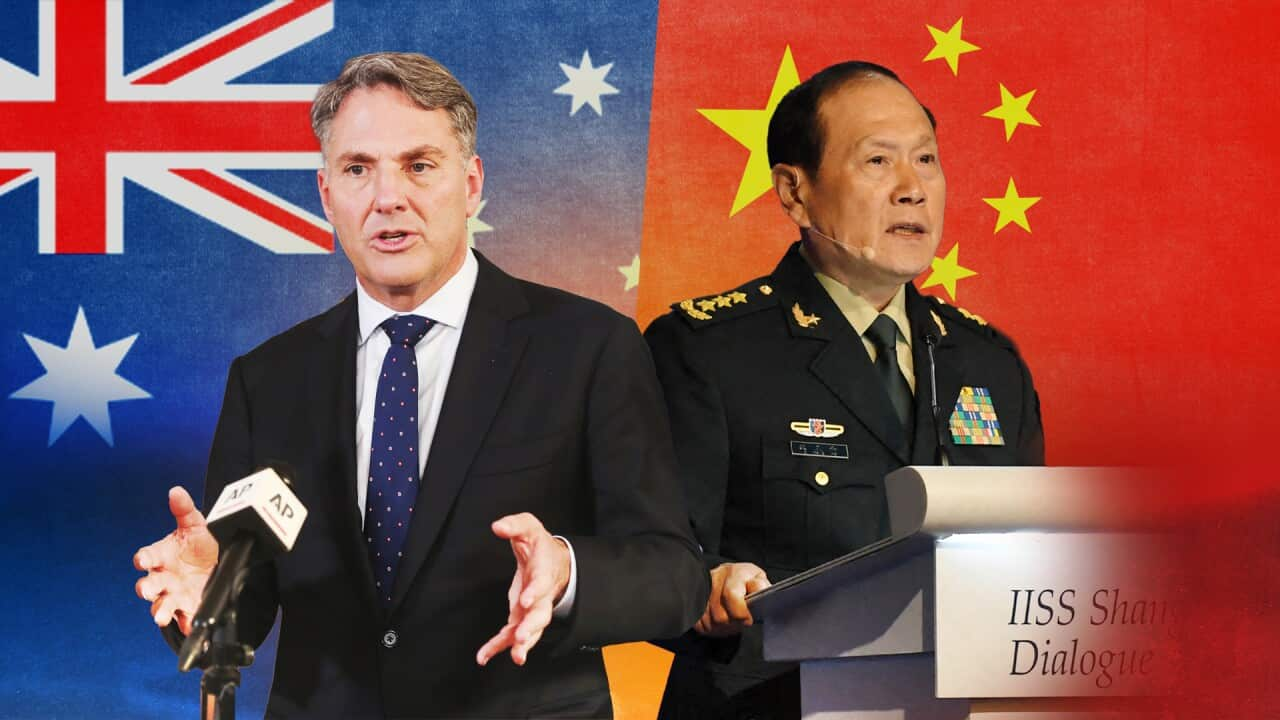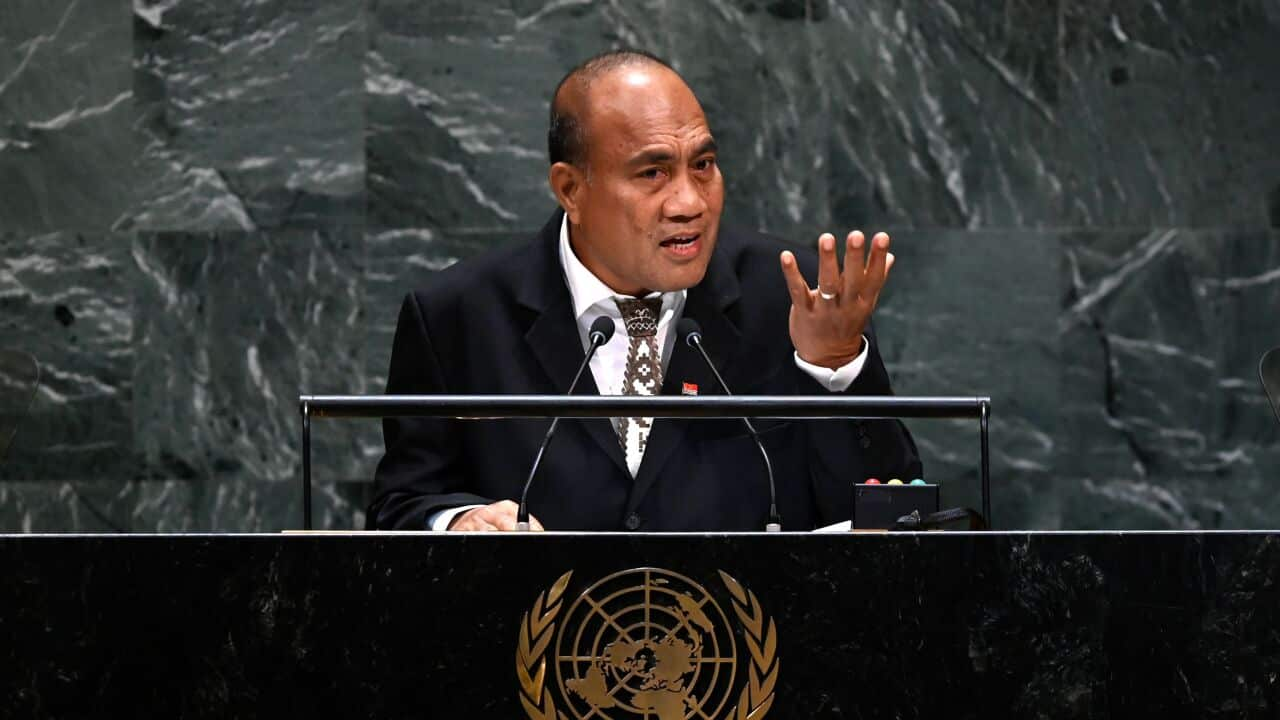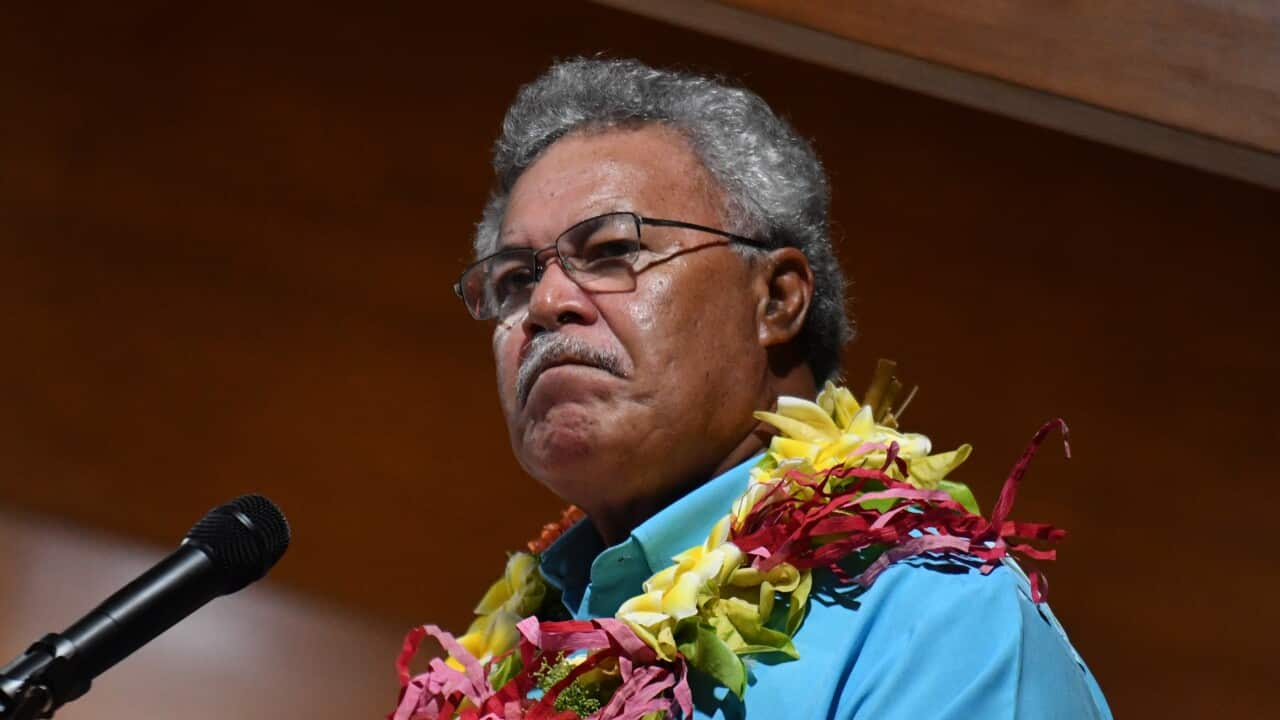Key Points
- China recently listed a number of demands to rebuild Sino-Australia relations.
- But Anthony Albanese says the government will stand up for national interests.
Anthony Albanese says Australia will look to cooperate with China, but won't respond to a list of demands from Beijing to rebuild the relationship between the countries.
Following talks between Foreign Minister Penny Wong and her Chinese counterpart Wang Yi, Beijing outlined four ways ties could be restored.
After blaming the previous Coalition government for a breakdown in relations between the two countries, Mr Wang said Australia would need to treat China as a partner rather than a rival, as well as reject "manipulation by a third party" - a veiled reference to the United States.
The prime minister said despite the demands listed by China, the government would stand up for national interests.
"Australia doesn't respond to demands, we respond to our own national interest," he told reporters in Canberra on Monday.
"I'm not in a position to listen to what the Chinese media says, I'll listen to what Penny Wong says about the meeting."
Other demands from China included that the two countries look for common ground, while also building public support.
China's foreign minister said he hoped Australia could "seize the opportunity" and come to a "correct understanding of China".
"The root cause of the difficulties in Chinese and Australian relations in recent years lies in the insistence of previous Australian governments to treat China as an opponent and even a threat," Mr Wang said.
The talks between Senator Wong and Mr Wang were the first discussions between foreign ministers of the two countries in three years, following a diplomatic freeze.
Since that time, China has placed trade sanctions on many Australian goods such as barley, beef and wine.
Mr Albanese said the federal government had a consistent view on China, despite the change of government at the last election.
"(The meeting) was just a step forward, Australia has not changed our position on any issues. We'll continue to be constructive," he said.
"I want to build good relations with all countries, but we will stand up for Australia's interests when we must."
Regional security 'high on agenda' for Pacific leaders
In the wake of China seeking to sign bilateral deals with several nations, regional security is set to be high on the agenda when leaders meet at the Pacific Islands Forum in Fiji, according to the federal minister for the region.
Pacific Minister Pat Conroy said it was important countries in the region work closely together on security issues.
"Pacific security should come from within the Pacific region, the Pacific family should be looking for its security needs from the Pacific and only go to outside partners when they cannot be met," he said.
"It's really important that we use the regional architecture of the Pacific Islands Forum to support our security needs rather than engaging with outside partners."
Australia's climate action 'welcomed' by Pacific nations
Australia's increased target on climate change action is set to be welcomed when leaders meet at the Pacific Islands Forum in Fiji, Mr Conroy.
He said the federal government's new climate target had been well supported by nations in the region and a sign of improved ties amid growing tensions in the Indo-Pacific.
"There's a real enthusiasm on Australia's climate policy, a palpable sense of relief that we have finally listened to the region's priorities ... it's giving us a huge opportunity to rebuild our relationship with the Pacific," he told ABC Radio on Monday.
Mr Albanese is set to travel to the forum, set to take place in Suva, on Wednesday, before returning to Australia on Friday.
The forum will bring together leaders from 18 member nations including New Zealand, Solomon Islands, Papua New Guinea and Tuvalu.
The new government has previously criticised their predecessors for "dropping the ball" in the Pacific.
The prime minister said since the election in May he had sensed a feeling of relief from Pacific leaders.
Since his election, Mr Albanese has travelled to Japan, Indonesia, Spain, France and Ukraine to meet world leaders and advance Australia's standing on the international stage.
Mr Conroy said implications of climate change, such as an increase in refugees fleeing from Pacific nations, would also be discussed at the summit.
"This is a real challenge, and it's one where we're working hard to avoid climate change where we can through our commitment to international action," he said.
"One of the aspects of climate change we're going to have to deal with is islands that are disappearing and how we handle movement around that is a critical question into the future."






